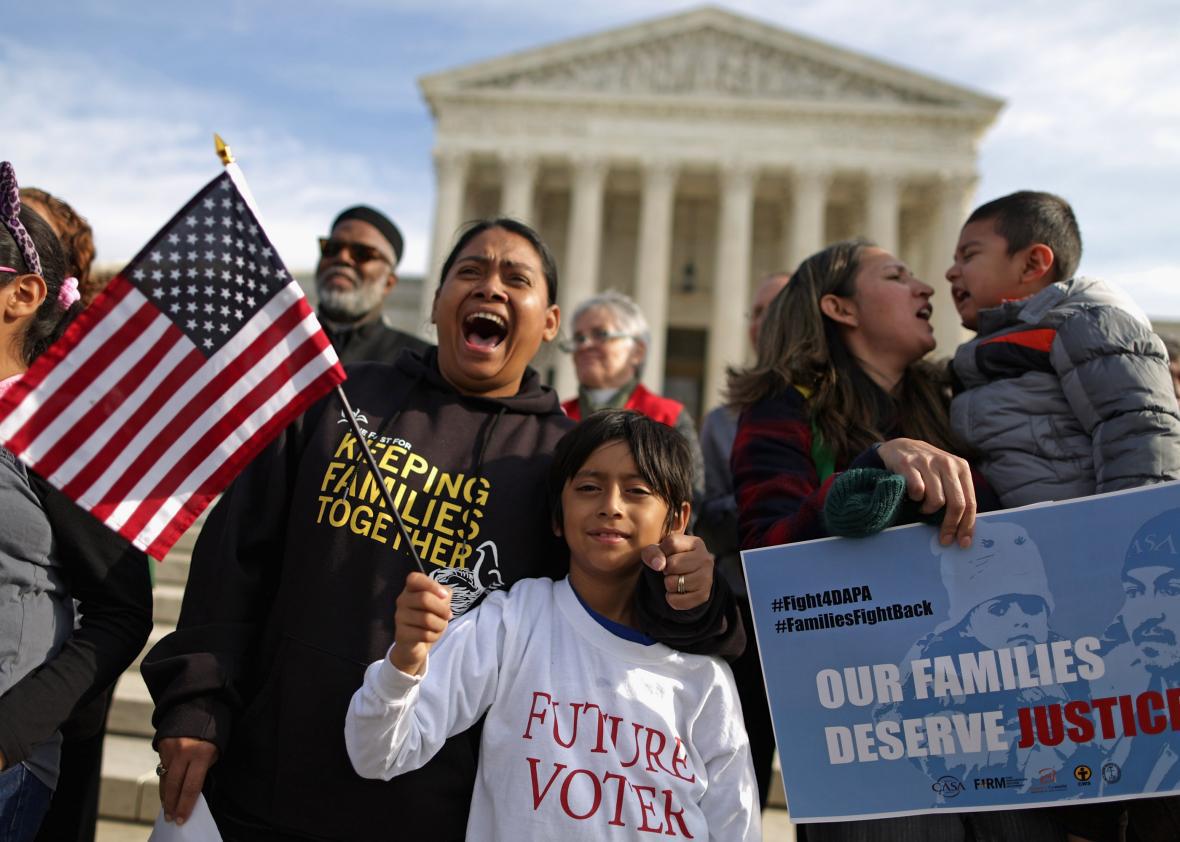Perhaps the most frustrating aspect of the legal battle against President Barack Obama’s immigration executive actions is the fact that a single district judge in Texas claimed the authority to block a federal program in all 50 states. Now an ambitious lawsuit is attempting to unfreeze Obama’s actions in 24 states—and thanks to the Supreme Court’s hobbled state, it might actually have a shot.
All of this may sound confusing and arcane, but the legal maneuvering here is actually quite simple. When Obama announced his plan to defer deportation for the undocumented parents of citizens and permanent residents, 26 states sued, arguing that he had exceeded his executive authority. U.S. District Judge Andrew Hanen agreed, issuing a preliminary injunction to halt the program’s implementation in all 50 states. Soon after, the U.S. Court of Appeals for the 5th Circuit affirmed Hanen’s decision. Then, last June, the Supreme Court deadlocked on the merits of the program, leaving the judge’s ruling in place without actually affirming it.
But can one judge actually block the implementation of a new federal program across the country, even in states that would welcome the program? That’s uncharted territory—and the new lawsuit argues that he cannot. The plaintiff, New York resident Martín Jonathan Batalla Vidal, had received deferred deportation status through the program, but saw that status revoked after Hanen’s decision.
The problem here, Batalla Vidal claims, is one of standing—the rules governing who can bring a federal case, and to whom a federal court decision applies. Batalla Vidal argues that Hanen’s injunction was “unlawfully broad” because the 26 plaintiff states “lacked standing to seek or obtain a nationwide injunction.” These states may have had standing to halt the program’s implementation within their borders—but they don’t have standing to block the program elsewhere. Texas, which initiated this litigation, argued that undocumented immigrants harm the state by forcing it to help pay for their driver’s licenses. But how is Texas harmed when New York resident Batalla Vidal receives deferred deportation status? Batalla Vidal argues that it isn’t. And if Texas didn’t have standing to block the program in states outside that litigation, then Hanen lacked jurisdiction to halt the program in states that didn’t sue to stop it.
This gambit is clever because it builds on basic principles of federalism: One state doesn’t get to control what other states do. Why should Texas get to prevent Batalla Vidal from staying in the country when New York wants to let him remain? The suit also takes advantage of the Supreme Court’s continued deadlock. June’s 4–4 split set no precedent, allowing a different court to arrive at the opposite conclusion of Hanen and the 5th Circuit. If Batalla Vidal can persuade a federal judge in New York to affirm the legality of Obama’s actions, he could probably get his original deferred deportation status back. That success would spur lawsuits in every other circuit but the 5th, creating a road map for the restoration of the program in nearly half the country.
